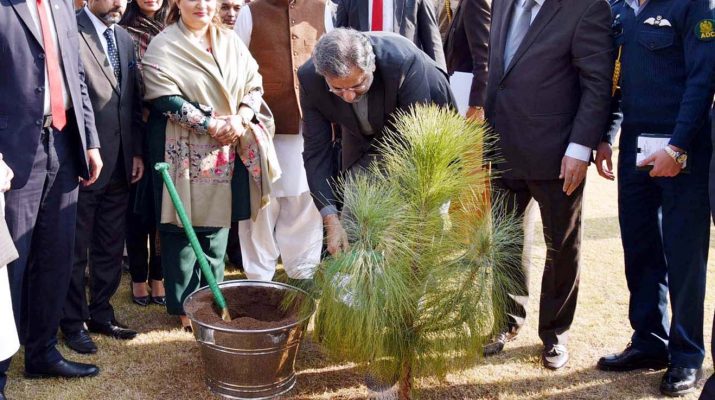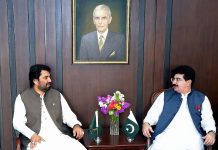
The experts expressed their views over the issue at a three-day seminar titled ‘Practical and Theoretical Review of Aspects of Peace and Conflict in Local and Global Perspectives’ organized at University of Sindh, Jamshoro.
The event was organized by Office of Research, Innovation and Commercialization (OREC) of SU, Higher Education Commission and Shamsul Ulema Mirza Kaleech Baig Chair.
Speaking at the seminar’s first session Prof Farhat Jokhio of Sindh University said that conflicts of different nature in the world were creating numerous problems and also providing breeding ground for terrorism.
“We all seem to have a role in some way in the spread of such strife,” she observed.
She said that in order to spread love and peace in the world the humans would first have to attain internal peace.
“When we are at peace within ourselves only then we can make the society peaceful,” Farhat believed.
The professor said although the human psyche disliked the situation of strife, circumstances compel the humans to become entangled in such situations.
“Humans can enjoy life only when there is peace and love in the society,” she said.
Expressing ambivalence over the role of the media for creation of both peace and conflict, Prof Farhat said the media highlighted positive and negative issues and situations which become reasons for promoting peace or conflict.
Speaking in the second session titled ‘Peace and Trade’, Focal Person of SU’s Naushahro Feroze Campus Dr Hakim Mahesar explained how conflict and strife affected trade and how promotion of trade could lower the incidence of conflict.
He gave example of Pakistan, where he said China Pakistan Economic Corridor (CPEC) project had contributed to establishing peace and curbing violence.
“Not only peace is restoring in Pakistan, the economic landscape of the country has also improved and will keep improving,” he observed.
Dr Mahesar said peace and trade had a close relation because when the economy prospers and employment opportunities are created, the humans tend to dedicate their lives for work and their families.
“War and conflicts don’t only affect the two sides who engage in fighting but their implications are far reaching which adversely affect the society as a whole,” he noted.
Dr Mehmoodul Hassan Mughal, who addressed the third session titled ‘Peace and Hope for Humanity’, elaborated that the objective of peace was to live and let others live.
“There are two types of people. There are those who perturb other people and those who get perturbed. While the latter somehow find a way out of perturbation, the former remain ensnared in that state,” he observed.
Mughal stressed on the need of adopting positive approach by the humans as a panacea to end the strife and pave the way for peace in society.
“The journey of thousands of miles starts with the first step,” he said.
He advised the people to prefer identifying good qualities in the characters of other people and desist from pointing out only negative aspects.
“Instinctively humans are peaceful but circumstances compel them to opt for wrong path in their lives. If we want peace, we will have to promote the positive approach to life,” he believed.
Dr Mughal urged the people to develop closer relations with their family members and relatives and to learn to be helpful to them when they were in need.
The event concluded with performance of a tableau titled ‘Need for Peace’ while the notable musician Zulfiqar Ali Khan read a poem of late poet Mirza Kaleech Baig.
The event’s coordinator Sheeraz Shaikh informed that the seminar’s concluding ceremony would be held on its third day on Thursday.
Published in Daily Times, February 1st 2018.













